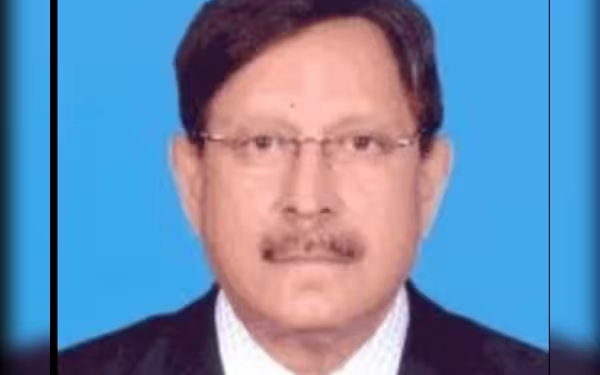Tuesday, July 2, 2024 03:32 PM
Senator Naek Represents PPP in Supreme Court Battle
- Senator Naek submits power of attorney for PPP in Supreme Court.
- ECP takes action against PTI for irregularities in intra-party elections.
- Legal battle over reserved seats underscores democratic values in Pakistan.
 Image Credits: tribune_pk
Image Credits: tribune_pkThe Pakistan People's Party, represented by Senator Naek, challenges reserved seats allocation in a legal battle involving the Supreme Court and ECP, highlighting democratic values in Pakistan's political landscape.
The Pakistan People's Party (PPP) has enlisted the help of Senator Farooq H Naek to tackle the matter of additional reserved seats that were withdrawn from the government alliance. Senator Naek has submitted a power of attorney on behalf of the PPP to the Supreme Court, which is set to examine the case concerning the reserved seats of the Sunni Ittehad Council (SIC) on June 3.
Previously, the Supreme Court had issued notifications to all parties involved following an appeal by the SIC. A three-member panel of the Supreme Court, headed by senior judge Mansoor Ali Shah, temporarily halted a Peshawar High Court ruling that distributed extra reserved seats to various political groups in national and provincial assemblies. The issue has been forwarded to a three-member committee for the establishment of a larger panel.
In a separate development, the Election Commission of Pakistan (ECP) took action against the Pakistan Tehreek-e-Insaf (PTI) on December 22, 2023, due to irregularities in its intra-party elections. The PTI was compelled to nominate independent candidates in the general elections on February 8 after the Supreme Court upheld the ECP's verdict. Subsequently, independent candidates supported by PTI joined the SIC and requested reserved seats for women and minorities in the assemblies. However, the ECP turned down the request on March 4, citing the SIC's failure to submit a candidate priority list before the elections.
The SIC contested the ECP's decision in the Peshawar High Court, which upheld the rejection on March 14. The SIC then appealed to the Supreme Court, stressing the significance of ensuring that the allocation of reserved seats adheres to democratic principles and mirrors the electorate's voice in the legislatures. The Supreme Court emphasized the necessity of fairness, transparency, and integrity in the electoral process to uphold the genuine representation of the people's will in parliament.
The legal battle over reserved seats in Pakistan's political landscape highlights the ongoing efforts to uphold democratic values and ensure equitable representation in the country's legislative bodies. As the Supreme Court prepares to review the case, the outcome will have far-reaching implications for the future of reserved seats allocation and the democratic process in Pakistan.













